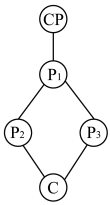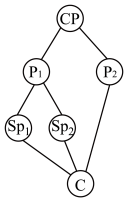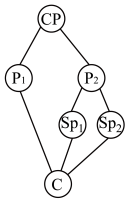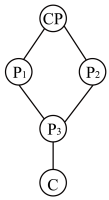“In wilderness(荒野) is the preservation of the world.” This is a famous saying from a writer regarded as one of the fathers of environmentalism. The frequency with which it is borrowed mirrors a heated debate on environmental protection: whether to place wilderness at the heart of what is to be preserved.
As John Sauven of Greenpeace UK points out, there is a strong appeal in images of the wild, the untouched; more than anything else, they speak of the nature that many people value most dearly. The urge to leave the subject of such images untouched is strong, and the danger exploitation(开发) brings to such landscapes(景观) is real. Some of these wildernesses also perform functions that humans need—the rainforests, for example, store carbon in vast quantities. To Mr.Sauven, these ”ecosystem services” far outweigh the gains from exploitation.
Lee Lane, a visiting fellow at the Hudson Institute, takes the opposing view. He acknowledges that wildernesses do provide useful services, such as water conservation. But that is not, he argues, a reason to avoid all human presence, or indeed commercial and industrial exploitation. There are ever more people on the Earth, and they reasonably and rightfully want to have better lives, rather than merely struggle for survival. While the ways of using resources have improved, there is still a growing need for raw materials, and some wildernesses contain them in abundance. If they can be tapped without reducing the services those wildernesses provide, the argument goes, there is no further reason not to do so. Being untouched is not, in itself, a characteristic worth valuing above all others.
I look forwards to seeing these views taken further, and to their being challenged by the other participants. One challenge that suggests itself to me is that both cases need to take on the question of spiritual value a little more directly. And there is a practical question as to whether wildernesses can be exploited without harm.
This is a topic that calls for not only free expression of feelings, but also the guidance of reason. What position wilderness should enjoy in the preservation of the world obviously deserves much more serious thinking.
1. John Sauven holds that_____.
| A.many people value nature too much |
| B.exploitation of wildernesses is harmful |
| C.wildernesses provide humans with necessities |
| D.the urge to develop the ecosystem services is strong |
| A.The exploitation is necessary for the poor people. |
| B.Wildernesses cannot guarantee better use of raw materials. |
| C.Useful services of wildernesses are not the reason for no exploitation. |
| D.All the characteristics concerning the exploitation should be treated equally. |
| A.Objective. | B.Disapproving. | C.Sceptical. | D.Optimistic. |
CP: Central Point P: Point Sp: Sub-point(次要点) : Conclusion
A. | B. | C. | D. |
2 . If your parents were to surprise you with a present on your birthday, which one would you prefer, a trip to the amusement park or a new pair of shoes?
According to Science Daily, about one-third of the people are likely to prefer shoes to a fun trip. These people are called "materialists", namely, those who value material goods more than experiences. But which of the two choices makes people happier?
Back in 2009, Ryan Howell, a professor at San Francisco State University, found that in the long run, experiences make people happier than possessions. This is because the joy of receiving a new object fades over time as you get used to seeing it every day. Experiences, on the other hand, can continue to bring you joy in the future through happy memories.
But materialists should at least be happy when they first buy something, shouldn't they?
To figure it out, Howell did another study. He classified a group of adults according to their personality types, ranging from less materialistic to more materialistic. Each person was asked different questions to see how they felt about spending money on material goods versus spending money on experiences.
As expected, the more materialistic participants got less happiness from purchases than the less materialistic, because such purchases didn't fit with their personalities and values. But to Howell's surprise, he found that materialists weren't any happier even if they spent money on material items.
This is because materialists worry that others may criticize or look clown on their choices. "There are certain value systems that are rejected by society," said Howell. "When we find out someone is materialistic, we think less of them, and that drives their happiness down.”
Another reason is that materialistic people always focus on what they don't have instead of what they have now. This makes them feel less satisfied and grateful.
If you happen to be a materialistic person, there's something you can try. "If materialists make more accurate purchases, rather than trying to impress others, they will be happier, “Howell said.
You should also remember what an ancient Greek philosopher once said, “Do not spoil what you have by desiring what you have not; remember what you now have was once among the things you only hoped for."
1. What did Ryan Howell find in his studies?| A.Material goods bring people less happiness than experiences. |
| B.About one-third of the people prefer material goods to experiences. |
| C.Materialists have more fun spending money on goods than on experiences. |
| D.Receiving a new object brings lasting joy while the joy of an experience fades soon. |
| A.How to judge whether a person is a materialist. |
| B.Why materialists are not happy with their purchases. |
| C.How materialists feel when they spend money on goods. |
| D.Whether materialists are happy when they first make purchases. |
| A.To advise materialistic people not to try to impress others. |
| B.To persuade people to be satisfied with what they have. |
| C.To prove it's unwise to be materialistic and desire too much. |
| D.To tell readers what they desire now might one day become theirs. |
| A.Are You a Materialist? |
| B.How To Acquire Happiness? |
| C.The Best Present For the Birthday |
| D.Which Can Make People Happier? |



